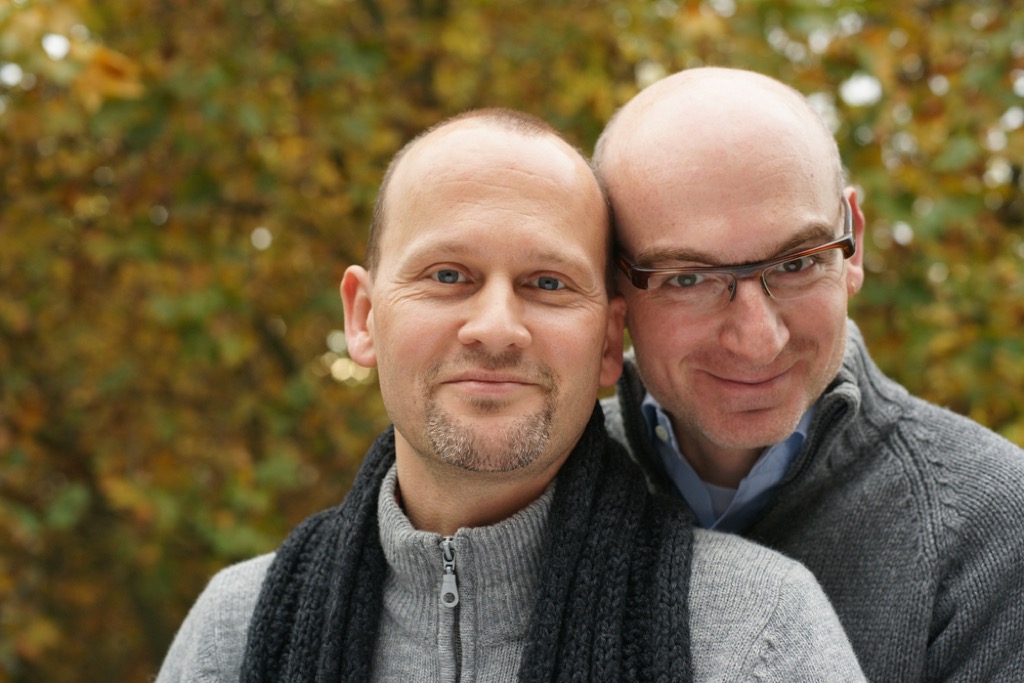50 Regrets Everyone Has Over 50, According to Therapists

Everyone has regrets in life, whether you still kick yourself for missing the winning goal in that high school soccer game or you wish you’d picked a different career path. As you get older, instead of dissipating, those regrets tend to start piling up as you realize you have less time to make up for said missed opportunities. But this doesn’t have to be the case. Understanding what you may lament later in life can help you prevent those feelings and also come to terms with the fact that it’s completely normal. That’s why, with the help of mental health professionals, we’ve rounded up the 50 biggest regrets people have over 50. Read on for this expert advice.
READ THIS NEXT: The Top 5 Signs You Found the Love of Your Life, According to Relationship Experts.
50 Common Regrets Everyone Has Over 50
1. Not furthering your education

While the idea of sitting in a classroom taking tests may not appeal to everyone, missing out on educational opportunities is actually a major source of regret for many people later in life.
According to research published in the Personality and Social Psychology Bulletin in 2008, education was the number one category in which study subjects cited regret, compared to career, romance, parenting, self-improvement, and leisure.
One explanation for this that the study offers is that people today can always go back to school, making the choice not to go feel worse. “With the rise of community colleges and student aid programs in recent decades, education of some sort is accessible to nearly all socioeconomic groups,” they state.
2. Not finding fulfillment

Whether it’s never getting that degree, pursuing the right job, or finding hobbies you’re passionate about, a lack of fulfillment is a major regret for many people.
“They might have allowed their limiting beliefs or other peoples’ opinions to get in the way of them achieving their goals,” explains Emma Demar, LMSW, founder of That Trendy Therapist. “Consequently, they end up feeling like they have not lived their lives in a way that made them feel fulfilled and truly happy.”
3. Not accomplishing more

Although it’s a subjective matter, many people find themselves regretting not achieving certain accomplishments as they age.
“What troubles people in later life are the chances they didn’t take or achievements they didn’t accomplish,” explains Karen R. Koenig, LCSW, MED, a licensed psychotherapist, motivational speaker, and international author based in Sarasota, Florida.
In fact, according to a 2018 study published in the journal Emotion, 72 percent of adults surveyed expressed regret over their perceived failure to live up to their own ideal self-image.
4. Not trying to land that dream job

Speaking of fulfillment, not going after your dream job is a very common regret for people over 50, as they approach retirement age.
According to a 2016 survey of 3,000 Americans by life insurance company Allianz, 38 percent of study subjects admitted that they wished they had taken more career risks. And 29 percent said, if they had the time, they’d pursue “a dream like starting a new business,” while 21 percent said they’d love to have “a second career doing something they truly enjoy.”
5. Working too much

On the other side of the coin, working too much is also not necessarily a good thing. When looking back at their lives, few people are likely to say, “I wish I had spent more Saturdays at the office.”
As palliative care nurse Bronnie Ware writes on her blog, working too hard at the expense of a personal life is one of the most commonly-cited regrets among the dying. “All of the men I nursed deeply regretted spending so much of their lives on the treadmill of a work existence,” she notes.
6. Choosing relationships over your career

Interestingly, many people over 50 regret prioritizing their relationships—say, with a partner, family members, or children—over their career, according to Linda Whiteside, LPCC, lead clinical counselor of NuView Treatment Center, who also adds that, in her experience, it’s often women who feel this way.
“They share that because they felt compelled to marry at some point at the peak of their career, they had opportunities that they let slip because of marriage and motherhood,” Whiteside says.
7. Not asking that person out

Wondering about something that could’ve changed the course of your life is not abnormal for folks over 50. Decades later, you may find yourself thinking about what would have happened if you had been brave enough to ask that cute classmate out in high school.
According to the Personality and Social Psychology Bulletin study, after education and career, romance ranked number three for regrets, with 14.8 percent of respondents citing it. “Might regrets centering on romance be more common today than they were a century ago, when people married young, divorced rarely, and saw few opportunities for alternative romantic partners?” the study questions.
8. Letting the passion die

Few relationships can indefinitely maintain the passion they had in their first weeks or months, but a prolonged detachment can lead to serious regrets.
According to 2012 research from Northwestern’s Kellogg School of Management, 18.1 percent of study subjects, the largest group, cited romantic relationships as the biggest source of regret.
Lee Phillips, LCSW, certified sex and couples therapist, says if you notice this happening, whether it’s with emotional or sexual passion, address it with your partner. “This is the first step in reclaiming the passion in your relationship.”
9. Not being more romantic

Relationships end for a variety of reasons, but few people will tell you that they wished they had been less romantic after all is said and done. In fact, skipping those little chances to show someone how special they are to you with a romantic gesture is often a major regret later in life.
And as Phillips notes, it doesn’t always have to be big, grand gestures. “This is taking the time to appreciate and validate your partner. It also includes initiating romantic dates and you may regret this because your partner is or was the one always planning dates.”
10. Being an inattentive partner

When you’re in your 60s, 70s, and 80s, it’s unlikely that you’ll look back fondly on those nights you spent toiling away at work while your partner tried to connect with you.
“People will often regret that they did not take the time and energy to pay attention to their partner. They will feel guilty because it has led to a disconnection in the relationship,” shares Phillips. “The goal here is to always be curious about your partner. This shows that you care and that you are proud of them.”
READ THIS NEXT: 7 Things Divorced People Wish They Had Done Differently in Their Marriage.
11. Not ending an abusive relationship sooner

Of course, not every relationship is a good one, and many people find themselves regretting the time they wasted on partners who didn’t value them or were abusive.
“People feel regret for letting the relationship last as long as it did,” says licensed therapist Eric Patterson, LPC. “If they had to do it all again, they would end the relationship at the first indication of trouble.”
12. Getting divorced

Divorce can be the best choice for a couple, but it can also be a source of regret later if it’s too hasty or too hostile. In one 2016 survey by law firm Avvo, 27 percent of women polled admitted to regretting their divorces, while 39 percent of men said the same.
Interestingly, males and females differed when it came to who they blamed for the divorce. “A full 64% of women said their spouse was to blame for the failure of the marriage, while a relatively scant 44% of men said the same. Meanwhile, 42% of men said the blame should be shared equally; only 29% of women were as magnanimous,” the survey explains.
13. Staying married for your kids

While giving up on your marriage too quickly may be a regret for some, many others find themselves wishing they’d left a bad relationship sooner. Licensed marriage and family therapist Elisabeth Goldberg says that, among her patients, “staying in a bad marriage is the number one regret of people over 50.”
And while many couples say they stay married for their children, Goldberg cautions against doing so. “Children of divorce often say they wish their parents separated sooner.”
14. Not preparing your kids to be independent

Many parents find themselves regretting the choices they’ve made, but few weigh on them quite as heavily as their lack of foresight when it came to preparing their kids for adulthood.
“We do a lot of pampering with this generation, and we forget to teach life skills,” cautions licensed professional counselor and educator Stacy Haynes, EdD, LPC.
15. Not spending more time with your kids

You’ve probably heard the adage about parenting: The days are long, but the years are short. In many cases, one of the biggest regrets parents have is not spending more time bonding with their children when they had the chance.
“Many people regret spending too much time at work and not enough time with [their] children,” says Robyn. “We often focus on providing or perhaps succeeding, but forget that our families will not be with us forever.”
For more life advice delivered straight to your inbox, sign up for our daily newsletter.
16. Not having kids

There are many reasons why someone may not have had children, and later in life is when people may start regretting it.
“They may have put their careers first, had medical concerns, and even the fear of not being a great parent or even feeling like they were not going to have the support that was needed,” shares Phillips.
17. Spending too little time with your parents

We only get a certain number of years to spend with our parents. Sadly, many people take those familial bonds for granted while their moms and dads are still alive, only to regret it once they’ve passed.
“Many people wonder later what else they might have learned from their parents,” says Robyn.
18. Trying to live up to your parents’ expectations

Having a good relationship with your parents can be a wonderful thing. However, trying to live up to their expectations, no matter the personal cost, is a major source of regret in many people’s lives.
According to the Allianz study, a shocking 35 percent of respondents admitted they wished they had pursued more of the things they wanted to do, not just the ones expected of them.
“Do you ever wonder why some people have a mid-life crisis at 50?” asks Robyn. “[It’s because] we have bent to the pressure of fitting into our family’s or culture’s expectations and wonder if it was worth it.”
19. Not being more present

Those hours you spent looking at your phone instead of being present? Don’t be surprised if you wish you had that time back in your 50s and beyond.
But, as Jennifer Kelman, licensed clinical social worker and mental health expert on JustAnswer, says, be easy on yourself with this one. “Life is busy, work has demands, kids’ schedules are crazy and that can force one into being less present. As things slow down, it is easy to look back and wish that you were more present back then… you did the best you can.”
20. Holding onto grudges

Sure, it may feel good to protect yourself by holding onto a grudge after someone has wronged you, but odds are you’ll live to regret it later. Few people go to their grave thinking, “I’m so glad I stayed angry at that person.”
“We hold onto our own wounds and sorrows when we do not forgive,” says Colorado-based psychologist and life transitions expert Elisa Robyn, PhD. “Often we forget what we were even upset about, or realize that in the scheme of life, it was a minor hurt.”
READ THIS NEXT: 7 Body Language Signs That Mean Someone Is Lying, According to Therapists and Lawyers.
21. Not making amends with people

Just because you’ve let go of a grudge internally, doesn’t mean the other person knows it. In an article for Psychology Today, Steven Stosny, PhD, explains that regret in relationships is usually not about big things like infidelity or lies.
“The behaviors that lead to long-term regret tend to be smaller but more frequent failures of compassion in the form of blame, denial, avoidance, criticism, defensiveness, and stonewalling,” Stosny writes.
22. Not nurturing good relationships

Unfortunately, many people realize too late that they could have done more to keep their relationship healthy.
“People regret how they treated their spouse, parents, or children, whether that was neglectful and dismissive treatment or in some way abusive,” says Celan.
23. Keeping toxic people around

Sometimes, according to Lisa Lawless, PhD, sexual health expert and CEO of Holistic Wisdom, the opposite is true and we end up regretting the people we did invest in.
“Toxic relationships can be a major drain on our emotional and mental well-being. They can leave us feeling depleted, frustrated, and stuck,” Lawless points out. “And while it may feel difficult in the moment, cutting ties with those individuals who are causing us harm is often the best thing we can do for ourselves.”
24. Letting friendships fizzle out

With work, family commitments, and those futile attempts to find time to sleep, it’s no wonder we have so little time for social interactions as we get older. However, try to maintain those friendships while you can, or you’re likely to regret missing out.
“It takes time for many people to realize how vital our friends are to our wellbeing,” explains Robyn. “When we face a life crisis or want to celebrate something wonderful, it is our friends who gather around us. Our long-term friends who know us well and share our history matter more as we age.”
25. Not getting close to people

Shyness is inherent for some of us. However, those fears holding us back from meeting new people and truly getting close to others can plague us later in life.
In an article he wrote for TED, Daniel H. Pink, bestselling author of The Power of Regret, cited a 2012 study that “concluded that regrets about social relationships are felt more deeply than other types of regrets because they threaten our sense of belonging.” He went on to quote the study: “The need to belong is not just a fundamental human motive but a fundamental component of regret.”
26. Not hanging onto memories

Wish you’d gotten your grandmother to write down her recipes? Or that you asked your father what city in Poland he was born in? Perhaps you never bothered to digitize all those old rolls of film. Whatever the case, not preserving memories is a common regret among Americans.
A poll by YouGov of 6,090 participants found that “nearly half of Americans (47%) say they regret not recording or documenting a conversation with a person they were close to who is no longer alive.”
27. Being too tough on yourself

Everyone can be self-critical from time to time, but if you let those harsh criticisms dictate the way you’ve lived your life, odds are you’ll come to regret it.
“The regret is that so much time has been wasted being your own worst enemy instead of learning how to truly love yourself,” says Demar.
28. Not seeking help sooner

While deciding to get counseling can be difficult, many people regret not doing so sooner when they realize how much it improves their life.
“Most people wait until they are in a desperate place to seek out help,” explains licensed professional counselor Whitney Owens, LPC, MA. “Almost every client tells me that they wish they had come earlier.”
29. Not saving more

It may not be fun or glamorous in the moment, but saving extra cash might help you alleviate some regrets in your later years. Money issues, including not saving enough for retirement, are among the biggest regrets people have later in life.
A 2019 study by Natixis Investment Managers found that the average 45-year-old wants to retire at 64, but has saved just $166,328. That means that to retire with just under $1 million, they’ll need to save at least $42,000 a year.
30. Missing out on investment opportunities

Rueful about not snagging Google stock when you had the chance? You’re not alone. People tend to regret not making the most of their financial assets as they get older. “We often regret a chance not taken,” says Robyn.
READ THIS NEXT: The Most Walkable U.S. Cities in America for Seniors.
31. Not taking a vacation

According to a 2017 study conducted by Glassdoor, the average U.S. employee forfeits roughly half of their allotted time off from work. And 66 percent of those surveyed said that when they do take a vacation, they still work.
Moreover, when Priceline released their Work-Life Balance Report in 2018, they found that 41 percent of people said “obligation” trips (i.e. weddings, bachelor parties, baby showers, etc.) were among their top regrets when it came to how they used their paid time off.
32. Not traveling more

Travel may be an expensive habit, but those who stick close to home often find themselves regretting it later in life. In the Allianz survey, 56 percent of the respondents said they would have traveled more if they had to do things again.
33. Not being more spontaneous

Whether it’s that time you turned down a last-minute Vegas vacation or your decision to not get up on stage at that concert, a lack of spontaneity is often a major regret down the line. “Would one expensive vacation really have been a bad idea?” asks Robyn.
34. Not being more adventurous

An adventurous spirit is something that’s inherent to some and not others. But many people wish they had figured out a way to tap into theirs. According to the Allianz study, 35 percent of respondents regretted not being “more gutsy in their choices.”
35. Missing out on the little moments

That time you went to a work meeting instead of watching your daughter shine in her school play, or those nights you stayed in when your friends went out and had a blast? Don’t be surprised if those land on your list of regrets in your later years.
“There is a reason we talk about bucket lists,” says Robyn. “We want to build memories that we can savor and experiences that we shared with family or friends. Or perhaps just memories that remind us that we lived fully.”
36. Not eating healthier

As they age, many people feel disappointed that they didn’t take better care of themselves, particularly in terms of their food choices. Considering that research shows better eating can prevent one in five deaths worldwide, it’s safe to assume that many would opt for salads over cheeseburgers if they could do things over.
37. Not doing more to maintain your wellbeing

Your health is one of those things you can rarely get back once it’s gone, and in unfortunate circumstances, that can cause some painful regrets.
In a 2016 study conducted by BioMed Central, most primary care patients regretted their health decisions if they “experienced decisional conflict in the consultation.” According to the research, this included “feeling uninformed about options, feeling uncertain about risks and benefits of options, or feeling unsure about values and preferences related to choices or consequences.”
38. Spending too much time worrying

Anxiety and stress are unavoidable for many people, but doing so constantly can affect your emotional and physical well-being.
According to a 2016 report by Liberty Mutual Insurance, 38 percent of the population worries every single day, usually in the early morning or late evening. “In fact, older adults taking a retrospective look on their life frequently say their biggest regret is that they spent so much time worrying,” the report states.
39. Not doing more for others

A little altruism can go a long way when it comes to avoiding regret later in life. The results from the Allianz survey suggest that more than a fifth of people would prioritize volunteering if they had more time.
“Contributing to society by volunteering, supporting important causes, or in some way making a difference to the community or state of the world is widely valued, [but] realizing they did not do anything significant with their lives is a very common regret,” says postgraduate psychiatry resident Patricia Celan, MD.
40. Not standing up for others

Most people can think back to a time when they missed an opportunity to stand up to a bully. And when that missed chance means someone else got hurt—whether that’s emotional, mental, or physical pain—that regret may follow you for a lifetime.
On his website, Pink shares some of the earliest findings from his study on regret, and one of the most common was moral failings earlier in life. “People regretted bullying kids in school, cheating on tests, shoplifting from stores, and so on,” he explains. “A large number of people who expressed such regrets were in their 40s and 50s, suggesting they’ve been harboring these thoughts for decades.”
READ THIS NEXT: The 6 Words You Should “Never Ever Ever” Say to Your Partner, According to a Therapist.
41. Or not standing up for yourself

Assertiveness is a skill that many people, unfortunately, learn too late in life.
“As we get older, we may get a bit stronger and we may care less what others think,” explains Kelman. “If things felt tough in the younger years and you let others trample on your feelings and you didn’t stand up for yourself, then you might look back and wish you had the strength to be strong and stand up for yourself. Be gentle with yourself as this type of strength may take time to develop.”
42. Setting aside your passions

Not everyone can make a living doing the thing they love, and that’s to be expected. However, that doesn’t mean you won’t regret it. According to Allianz’s data, 39 percent of survey respondents admitted that they regretted not following their passion later in life.
43. Hiding your true personality

Your larger-than-life personality may not have a place at your buttoned-up office job, but hiding who you truly are to the people who care about you will rarely make you happy. Whether you’re simply toning down who you really are or you’re pretending to like or dislike things just to avoid ridicule, you’re bound to regret it as you age.
“When we are younger, we often contort ourselves to fit in with others, perhaps hiding parts of our personalities,” Kelman notes. “As you get older and feel more confident in who you are and comfortable with your personality, you may look back and regret that the strength wasn’t there to do so earlier.”
44. Not really getting to know yourself.

Maybe you didn’t hide your personality intentionally; maybe you weren’t able to truly turn inward.
“The most common regret I hear from people over 50 is that they wished they had learned to understand themselves sooner and become aware of how their emotions, childhood experiences, and behaviors have managed to create needless conflict and unhappiness in their adult lives and relationships,” shares Frank Thewes, LCSW, therapist and owner at Path Forward Therapy.
45. Ignoring your instincts

That hunch you had about that so-called “friend?” That feeling you should have moved to a new city when you had the chance? For many people, the decision not to listen to those gut feelings comes back as a major regret later in life.
“The ability to trust your gut and instincts comes with age, so often we feel less secure doing so when we are younger,” Kelman says. “Easy to second guess now that you have a clearer view of things and have learned that your instincts are on target, but back then, it may have been hard to fully rely on the instincts.”
46. Taking life too seriously

Taking your life too seriously rarely breeds the kind of happiness most people aspire to have. If you can’t find it in your heart to have a sense of humor about even the biggest challenges, it might turn into a regret later on.
“Some of this wisdom comes with living and having experience in the world,” notes Kelman.
47. Being unkind

Knowing that you made someone happy in their lifetime can make anyone feel good. Knowing that you were unkind to someone and didn’t take the steps necessary to fix it? That’s a major source of regret for most people.
“If you have good mental health, then having remorse for being unkind is a good thing and hopefully this kicks in before age 50,” shares Kelman. “But, if it doesn’t and you begin to soften as you get older, then yes, you will have some regrets over how you handled things.”
48. Not taking advantage of your youth

They say youth is wasted on the young, and that’s undeniably true. While you may have thought you were uncool, unattractive, and not so great at 18, in your later years, it’s highly likely you’ll regret not appreciating that fast metabolism or the lack of responsibilities you had as a young adult.
“This is quite common as we all think we have so much time. But the only time we have is right now, so looking back and wishing that you did more in our youth is quite common,” states Kelman. “Use that feeling to take advantage of where things are right now and live in the present and take advantage of all you can at your current age.”
49. Not seeing someone before they died

Not seeing someone before their death is a major regret for many people, and sadly, one of the few that can’t be remedied.
“This isn’t uncommon, but sometimes old feelings get in the way,” points out Kelman “This usually stirs up a lot of regret. Instead, relish in the good moments without dwelling on the last moments.”
50. Not leaving a legacy

It’s hard to know what people will say about you when you’re gone. Still, many people will admit that not considering their legacy was a serious oversight. Whether you wish you had had children, done more for the planet, or simply been kinder in life, the thought that people might have less-than-fond memories of you—or worse yet, no memories at all—can fill a person with regret.
“Our lives are given meaning by what we do in our lives, how we touch other people, and how we help others,” notes Kelman. “That is a wonderful legacy to leave behind. If we feel we haven’t done enough in these areas, then regret can creep in. Age 50 seems to be the time when people begin to take stock of their lives and all they have done.”
Luckily, at 50, you still have plenty of time to change your legacy for good.